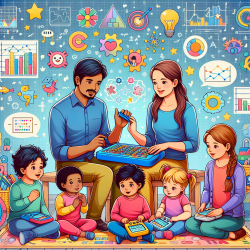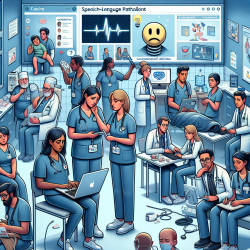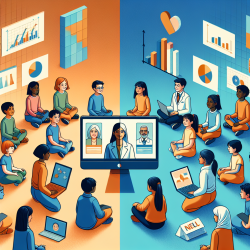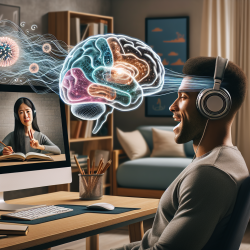Enhancing Practitioner Skills Through Insights from "Mad Actors. No. 1"
As a Special Education Director, I am constantly seeking ways to enhance the skills of practitioners within our district. The research article "Mad Actors. No. 1," published in the Journal of Psychological Medicine and Mental Pathology, offers valuable insights that can be applied to improve practitioner skills, particularly in the realm of online therapy services.
The article delves into the psychological aspects of actors who portray madness, providing a unique perspective on mental pathology. While the primary focus is on actors, the findings can be extrapolated to benefit practitioners working with students who require special education services. Here are some key takeaways and actionable steps for practitioners:
Understanding the Psychological Nuances
One of the primary outcomes of the research is the emphasis on understanding the psychological nuances of individuals exhibiting atypical behaviors. Practitioners can enhance their skills by:
- Engaging in Continuous Learning: Attend workshops and webinars focused on mental health and psychological assessments to stay updated on the latest research and methodologies.
- Implementing Empathy-Driven Approaches: Foster a deeper understanding of students' emotional and psychological states by employing empathy-driven approaches in therapy sessions.
Encouraging Further Research
The article also highlights the importance of ongoing research in the field of mental pathology. Practitioners are encouraged to:
- Participate in Research Studies: Collaborate with academic institutions to contribute to research studies, enhancing the body of knowledge in special education and therapy.
- Conduct Independent Research: Explore specific case studies within your practice to identify patterns and develop tailored intervention strategies.
Applying Insights to Online Therapy
With the rise of online therapy services, practitioners can leverage the insights from "Mad Actors. No. 1" to improve their virtual interactions with students:
- Utilize Technology Effectively: Incorporate digital tools that facilitate better communication and engagement with students during online sessions.
- Adapt Techniques for Virtual Settings: Modify traditional therapeutic techniques to suit online platforms, ensuring that students receive the same level of care and attention as in-person sessions.
Conclusion
Incorporating the findings from "Mad Actors. No. 1" into practice can significantly enhance the skills of practitioners, ultimately benefiting the students they serve. By understanding psychological nuances, engaging in continuous learning, and adapting to online therapy environments, practitioners can provide more effective and empathetic care.
To read the original research paper, please follow this link: Mad Actors. No. 1.










